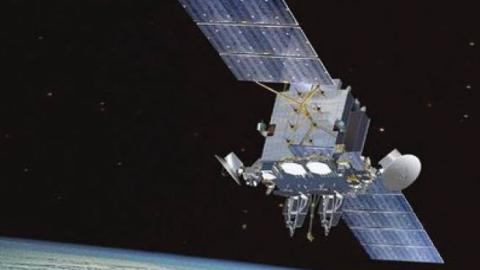Saddled with $15 billion of debt, the satellite operator Intelsat recently announced a Chapter 11 bankruptcy.
To those who aren’t telecom industry observers, this situation might seem puzzling. Intelsat holds satellite licenses around the world, including many here in the U.S. Many of them are in the C-band, an area of mid-band spectrum widely seen as critical for 5G network coverage outside major cities. Indeed, mid-band spectrum is so valuable for wireless networks that it was a major impetus behind the recent T-Mobile-Sprint merger.
So then, how did Intelsat go bankrupt? Some analysts suggest that Intelsat, along with other satellite companies, could have avoided this fate by selling their C-band spectrum in a private auction to mid-band spectrum-hungry wireless carriers like AT&T or Verizon. By holding such a private auction, so the theory goes, the companies could have raked in billions of dollars. Consequently, they could have avoided bankruptcy.
The FCC didn’t permit Intelsat’s permit private auction. But contrary to what you might think, this decision had little to do with Intelsat’s bankruptcy. Here’s why:
1. Intelsat took on a substantial amount of debt, without corresponding revenues or cashflows.
Intelsat was the world’s first global commercial satellite company, launching its first satellite in 1965. The company took part in some of the most important moments in global history, including transmitting live images from the 1969 moon landing. But over the years, the company took on substantial amounts of debt, without corresponding increases in revenue or cashflow. Its financial statements in recent years have depicted a company with significant losses and negative shareholder equity. This holds true even when one considers the value of its licenses in the secondary marketplace, which, as part of Intelsat’s nonamortizable intangible assets and goodwill were valued at approximately $5 billion in 2018 and 2019.
2. Intelsat’s C-band licenses aren’t exclusive, and thus are of little value.
Assets only have market value if the rights to them are exclusive. This is the very idea behind private property rights. A plot of land in Manhattan assigned to an individual or a company has substantial market value because its use is exclusive. But the public sidewalk in front of the plot of land has no market value. Anyone can use it, and thus no one can legitimately claim exclusive use. No one owns it.
Alas, Intelsat’s C-band licenses resemble more the Manhattan sidewalk than the Manhattan plot of land. All C-band satellite licensees share 500 MHz of spectrum; nothing is exclusive. Indeed, satellite licensees share most of this spectrum with countless earth stations. Until June 2018, anyone could apply—without cost—for a space station license, granting them the right to shared use of the 500 MHz of C-band spectrum. Many businesses had already done so, and eight companies had dozens of satellites in service. Thus, new space station licenses had no particular economic value.
Economists have a term for this: the tragedy of the commons. Without exclusive property rights, “commons” are overused and poorly maintained, much like the Manhattan sidewalk. Intelsat may have used the C-band satellite spectrum more than any other company, but intensive use of a thing does not by itself confer ownership of that thing. Nor does it create corresponding economic value.
Economists have a term for this: the tragedy of the commons. Without exclusive property rights, “commons” are overused and poorly maintained, much like the Manhattan sidewalk. Intelsat may have used the C-band satellite spectrum more than any other company, but intensive use of a thing does not by itself confer ownership of that thing. Nor does it create corresponding economic value.
3. Because C-band licenses aren’t exclusive, a “private auction” would have been impossible.
In recent years, the best and highest-valued use of the C-band spectrum has become 5G mobile broadband. Recognizing this, despite not having exclusive rights to the spectrum, Intelsat and other C-Band satellite operators proposed to sell their C-Band “rights” to wireless carriers—much like a group of people trying to hold an auction for certain sidewalks in Manhattan. Under this proposal, some satellite operators and all of the countless earth station operators would have received nothing in exchange for relinquishing their existing licenses.
To the extent that C-band spectrum would be used for higher value 5G purposes, the proposal was sensible. That the would-be auctioneers had no exclusive rights to the spectrum made it anything but sensible.
Nonetheless, the FCC paid Intelsat’s proposal serious attention. Carving out more spectrum for 5G use promised substantial benefits—perhaps outweighing the obvious problem that existing licensees had no exclusive rights to their licenses. But lawsuits were certain to follow, and risks abounded in any courtroom where the judge would certainly discover that the would-be auctioneers had no provenance or exclusivity to sell licenses.
4. Instead, the FCC promised Intelsat billions of dollars. But even that wasn’t enough.
Rather than allow Intelsat’s private auction, the FCC decided to supervise its own public auction—one where the legitimacy of the licenses at auction would be undisputed. The FCC promised to give Intelsat and three other companies billions of dollars from the auction—perhaps a form of a finder’s fee. Intelsat alone could receive as much as $4.865 billion. The FCC creatively labeled these fees as various forms of compensation for relocation costs and expedited relocation. The meaning of these terms will almost certainly be challenged in court, on the basis that the FCC has been overly generous in payments to certain satellite companies such as Intelsat.
In the end, the causes of Intelsat’s bankruptcy are likely many. But the FCC is clearly not one of them. The FCC spared Intelsat from the disaster of attempting an unworkable private auction for spectrum Intelsat and others did not exclusively, and therefore actually, own. Instead, the FCC promised Intelsat billions of dollars in a public auction, possibly beyond its legal authority. Yet despite doing everything within, and perhaps beyond, its power, the FCC’s help ultimately wasn’t enough to head off Intelsat’s bankruptcy.
Read in RealClear Markets
















